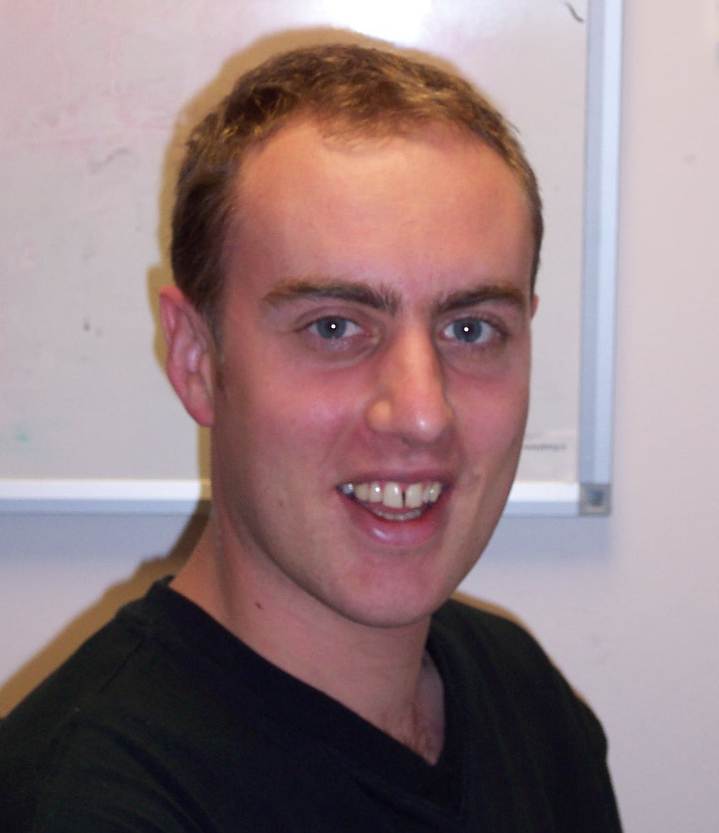|
|
||||
|
|
|
|||
|
|
|
|
|
|
Department
of Chemistry
|
|
|
||
|
|
|
|
|
|
|
|
|
|||
|
|
||||
|
Department of Chemistry Links:
Old Links:
|
Current Position:
2013 - present: Teaching Fellow in Drug Discovery and Organic
Chemistry Currently teach in these modules: First Year
Foundation Organic Laboratory (CH10009) Second Year
Organic Synthesis, reaction mechanisms and spectroscopy (CH20149-50) Third/Fourth Year
Future of Drug Discovery (CH30120 / CH40120) Research Interests
In addition to teaching I have a number of
research interests that cover continuation of my previous research: novel
fluorescent sensors for biological and medical applications; and new areas
that also tie in with my current teaching: Synthesis of novel benzothiophene
antibiotics (part of the CH30063 module) and New reversibly cyclic peptides
for anti-cancer therapies. Publications:
link
|
|||
|
|
One of our sensors after filtration, the
boronic acid-containing sensor is non-fluorescent in the centre. Residual
fluorophore without boronic acid glows at the filter paper edge. |
Image
taken by Bradley Vice
2004-2006 DNA diagnostics for clinical microbiology
This was a LINK
Applied Genomics funded project between the University
of Bath, University
of Glasgow, Atlas Genetics Ltd
and Stobhill Hospital, Glasgow.
This project aims to develop a novel
platform technology for use in exploitation of genomic data from clinically
important bacterial pathogens. The principal objectives were:
Optimisation of electrochemical DNA assays
for selected bacteria.
Characterisation of appropriate electrode
materials, sensor geometries and surface functionalisations
to enhance detection sensitivity and specificity.
Incorporation of microsystems technology
with DNA amplification and detection protocols.
The outcome of the project was an initial
prototype microsystem.
We have developed a sensing system using an
electroactive-labelled DNA probe; the label is detected upon release by
digestion of probe-target hybridised DNA complex by a T7 exonuclease.
Assay Overview:

Images
courtesy Dr Russell Keay
2002-2004 Synthesis of Novel Redox Probes for DNA detection
This was a TCS (now KTP) project (#3803)
involving Drs Chris
Frost and Toby
Jenkins at the
1998-2002 Lewis Acid Mediated Reactions of Olefins with
Carbonyls
PhD under the supervision of Dr Michael Willis.
Initial work involved an examination of the Desymmetrising
Ene Cyclisation. This developed into natural
product synthesis of bicyclic heterocycles using novel leaving-group
chemistry.



